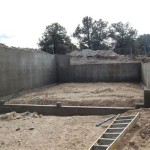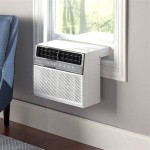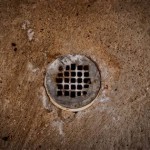How To Find Out Where Water Is Coming From In Basement
Water damage in a basement can be a frustrating and expensive problem. The first step in solving the problem is to find out where the water is coming from. Once you know the source of the leak, you can take steps to stop it and prevent further damage.
Check for Obvious Leaks
The first step in finding a water leak in your basement is to look for obvious sources. Check for cracks in the foundation, walls, or floor. Also, look for leaks around pipes, drains, or other fixtures. If you find any obvious leaks, you can try to seal them yourself using caulk or epoxy. However, if the leak is coming from a major source, such as a cracked foundation, you will need to call a professional for repairs.
Inspect the Foundation
If you cannot find any obvious leaks, the next step is to inspect the foundation of your home. Look for cracks, holes, or other damage that could allow water to seep in. You can also check the foundation for efflorescence, which is a white, powdery substance that forms when water evaporates from the concrete. Efflorescence is a sign that water is seeping through the foundation and could lead to more serious problems.
Check the Basement Walls
If the foundation is not the source of the leak, the next step is to check the basement walls. Look for cracks, holes, or other damage that could allow water to seep in. You can also check the walls for water stains, which could indicate a leak. If you find any cracks or holes, you can try to seal them yourself using caulk or epoxy. However, if the damage is more severe, you will need to call a professional for repairs.
Check the Floor
If the foundation and walls are not the source of the leak, the next step is to check the floor. Look for cracks, holes, or other damage that could allow water to seep in. You can also check the floor for water stains, which could indicate a leak. If you find any cracks or holes, you can try to seal them yourself using caulk or epoxy. However, if the damage is more severe, you will need to call a professional for repairs.
Check the Drain System
If the foundation, walls, and floor are not the source of the leak, the next step is to check the drain system. Make sure that all drains are clear of debris and that they are flowing properly. You can also check the sump pump to make sure that it is working properly. If you find any problems with the drain system, you can try to fix them yourself or call a professional for help.
Check for Condensation
In some cases, water in the basement can be caused by condensation. Condensation occurs when warm, moist air comes into contact with a cold surface. This can happen when the basement is not properly ventilated or when there is a lot of moisture in the air. To reduce condensation, you can try to improve ventilation in the basement and use a dehumidifier to remove moisture from the air.
Call a Professional
If you cannot find the source of the water leak in your basement, you should call a professional for help. A professional will be able to use specialized equipment to find the leak and recommend the best course of action for repairs.

How To Easily Find Where Your Basement Leak Is Coming From

7 Potential Causes Of Water In Your Basement Newcomb And Company

Impact Of A Leaky Basement On Your Home In Gaithersburg

Water Coming Up From Basement Floor Where Is The Leak How To Stop It

Help My Basement Leaks When It Rains News And Events For Systems Inc

Wet Basement Walls Causes Solutions Acculevel

Find Source Of The Water Leak In Basement My Georgia Plumber

Wet Basement Diy Repair Guide Radonseal

How To Stop Water From Coming Up Through The Basement Floor

Why Your Basement Leaks In Heavy Rain
Related Posts







